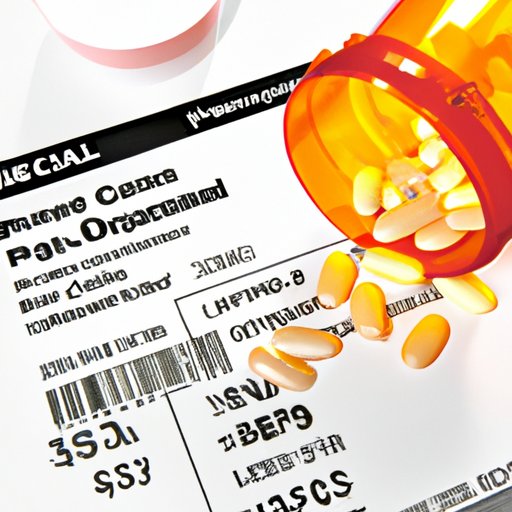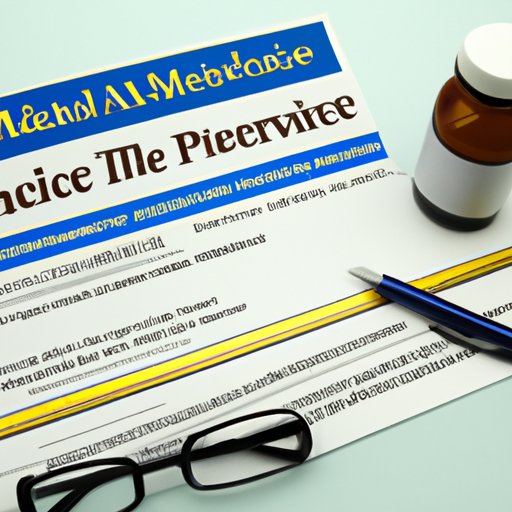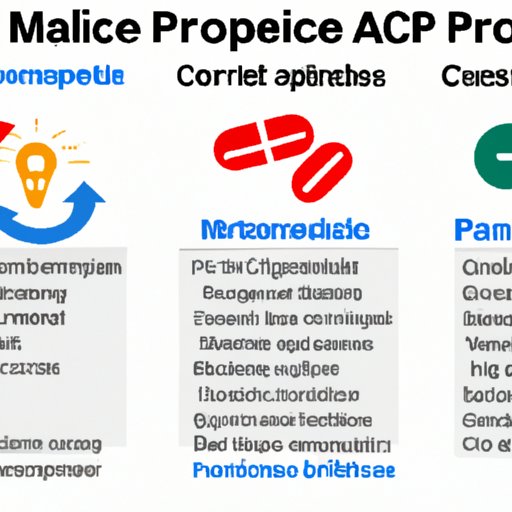Introduction:
Medicare is a federal health insurance program that provides coverage for people over the age of 65, as well as some younger individuals with disabilities or end-stage renal disease. Part of the coverage offered through Medicare includes prescription drugs, which can be an important source of relief for those who need them. However, deciphering if a prescription is covered by Medicare can be tricky, so it’s important to understand what’s covered and how to find out if your prescription is one of them.
Exploring the Different Types of Prescription Drugs Covered by Medicare
Medicare covers many different types of prescription drugs, including generic and brand name medications. According to the Centers for Medicare & Medicaid Services (CMS), “Medicare Part D covers most prescription drugs that you would get in a pharmacy, such as antibiotics and medications for high blood pressure, diabetes, asthma, and more.” Examples of drugs that may be covered include insulin, cholesterol lowering medications, and cancer treatments.

How to Determine if Your Prescription is Covered by Medicare
In order to determine if your prescription is covered by Medicare, there are a few guidelines you should follow. First, check with your doctor or pharmacist to see if they accept Medicare Part D. If they do, they should be able to tell you if your medication is covered. You can also use the Medicare Plan Finder Tool, which allows you to search for specific drugs and compare coverage options. Additionally, you can call 1-800-MEDICARE (1-800-633-4227) or visit the Medicare website to ask questions about specific drugs.

The Cost of Prescription Drugs Covered by Medicare
The cost of prescription drugs covered by Medicare will depend on the type of plan you have. Generally, Medicare Part D plans have a monthly premium, deductibles, and copayments or coinsurance. Depending on your income, you may qualify for extra help paying for your prescriptions. The CMS states, “People with limited incomes may be eligible for Extra Help to pay for the costs—monthly premiums, annual deductibles, and prescription co-payments—related to a Medicare prescription drug plan.”
Understanding the Difference Between Medicare Part A and Part B Coverage for Prescriptions
It’s important to understand the difference between Medicare Part A and Part B coverage when it comes to prescription drugs. Part A covers drugs that are usually given in a hospital, while Part B covers drugs that are typically given in a doctor’s office. For example, Part A covers chemotherapy drugs, while Part B covers injections or infusions. Additionally, Part B covers some preventive services, such as flu shots, while Part A does not.

Navigating the Process of Getting a Prescription Covered by Medicare
Navigating the process of getting a prescription covered by Medicare can be confusing, but there are steps you can take to make it easier. First, it’s important to talk to your doctor or pharmacist about the best way to get your prescription covered. It may be helpful to ask if there is a generic version of the drug that is covered by Medicare. Additionally, you can contact your local Medicare office or call 1-800-MEDICARE to get more information about the process.
Conclusion
Medicare offers prescription drug coverage for many different types of medications, ranging from generic to brand name drugs. To determine if your prescription is covered, you should speak with your doctor or pharmacist, use the Medicare Plan Finder Tool, or call 1-800-MEDICARE. Additionally, it’s important to understand the differences between Part A and Part B coverage for prescriptions. Finally, navigating the process of getting a prescription covered by Medicare can be confusing, but there are steps you can take to make it easier. By exploring your Medicare coverage options, you can ensure that you have access to the medications you need.
(Note: Is this article not meeting your expectations? Do you have knowledge or insights to share? Unlock new opportunities and expand your reach by joining our authors team. Click Registration to join us and share your expertise with our readers.)
